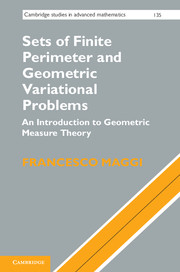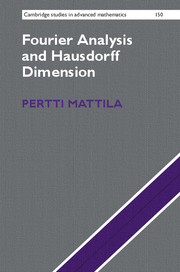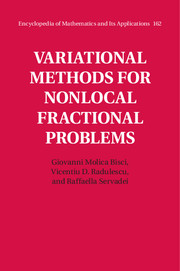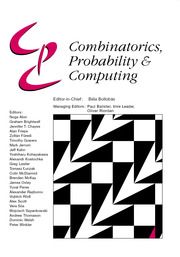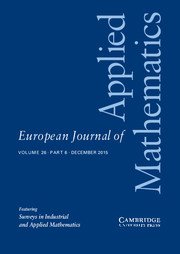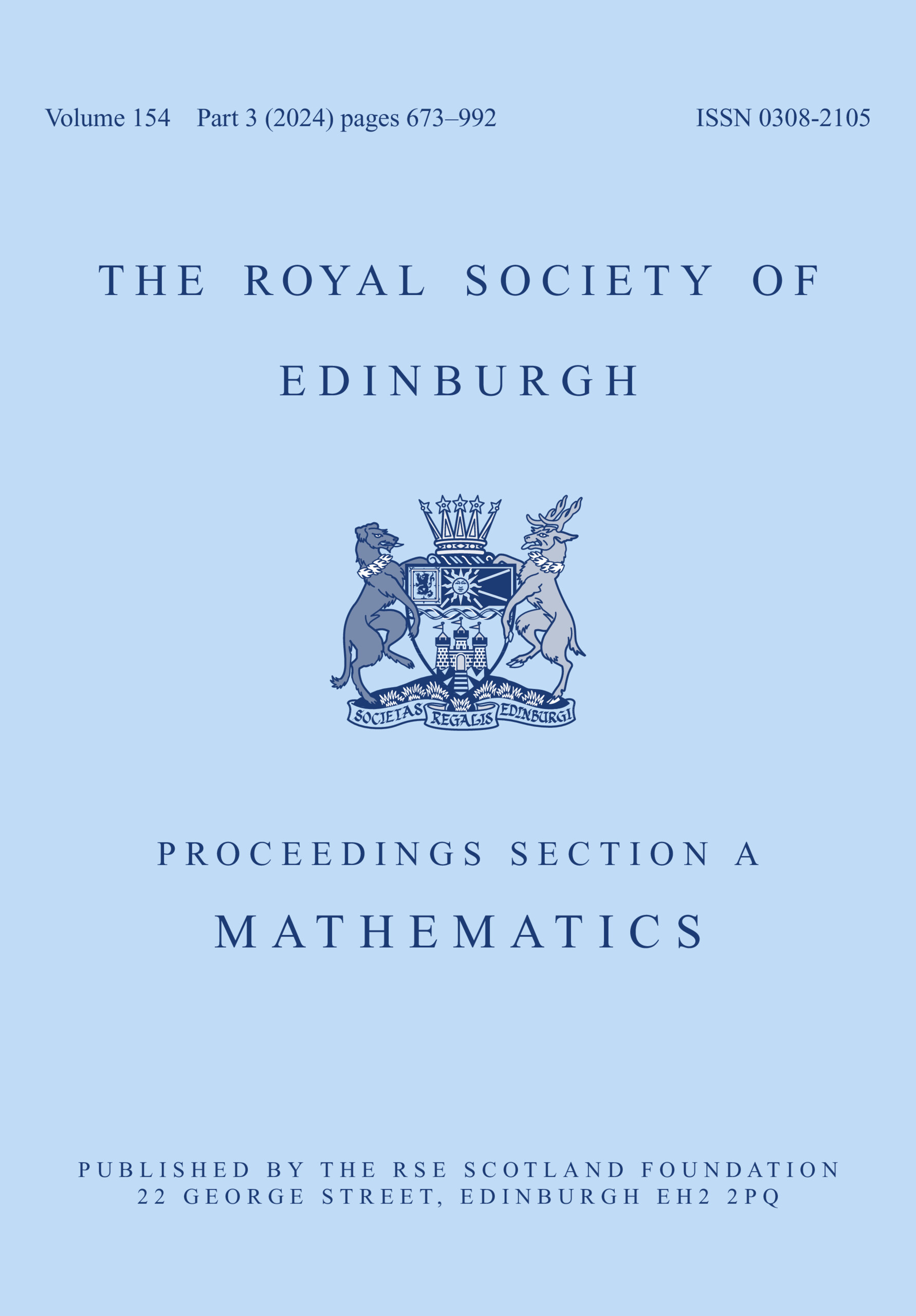Sets of Finite Perimeter and Geometric Variational Problems
An Introduction to Geometric Measure Theory
£73.99
Part of Cambridge Studies in Advanced Mathematics
- Author: Francesco Maggi, University of Texas, Austin
- Date Published: August 2012
- availability: Available
- format: Hardback
- isbn: 9781107021037
£
73.99
Hardback
Other available formats:
eBook
Looking for an inspection copy?
This title is not currently available on inspection
-
The marriage of analytic power to geometric intuition drives many of today's mathematical advances, yet books that build the connection from an elementary level remain scarce. This engaging introduction to geometric measure theory bridges analysis and geometry, taking readers from basic theory to some of the most celebrated results in modern analysis. The theory of sets of finite perimeter provides a simple and effective framework. Topics covered include existence, regularity, analysis of singularities, characterization and symmetry results for minimizers in geometric variational problems, starting from the basics about Hausdorff measures in Euclidean spaces and ending with complete proofs of the regularity of area-minimizing hypersurfaces up to singular sets of codimension 8. Explanatory pictures, detailed proofs, exercises and remarks providing heuristic motivation and summarizing difficult arguments make this graduate-level textbook suitable for self-study and also a useful reference for researchers. Readers require only undergraduate analysis and basic measure theory.
Read more- Easy access to a topic at the forefront of mathematical research
- Takes the reader from the basic theory through to research-level topics
- Expository style includes fully detailed proofs, as well as heuristic motivation and remarks
Reviews & endorsements
'The book is a clear exposition of the theory of sets of finite perimeter, that introduces this topic in a very elegant and original way, and shows some deep and important results and applications … Although most of the results contained in this book are classical, some of them appear in this volume for the first time in book form, and even the more classical topics which one may find in several other books are presented here with a strong touch of originality which makes this book pretty unique … I strongly recommend this excellent book to every researcher or graduate student in the field of calculus of variations and geometric measure theory.' Alessio Figalli, Canadian Mathematical Society Notes
See more reviews'The first aim of the book is to provide an introduction for beginners to the theory of sets of finite perimeter, presenting results concerning the existence, symmetry, regularity and structure of singularities in some variational problems involving length and area … The secondary aim … is to provide a multi-leveled introduction to the study of other variational problems … an interested reader is able to enter with relative ease several parts of geometric measure theory and to apply some tools from this theory in the study of other problems from mathematics … This is a well-written book by a specialist in the field … It provides generous guidance to the reader [and] is recommended … not only to beginners who can find an up-to-date source in the field but also to specialists … It is an invitation to understand and to approach some deep and difficult problems from mathematics and physics.' Vasile Oproiu, Zentralblatt MATH
Customer reviews
Not yet reviewed
Be the first to review
Review was not posted due to profanity
×Product details
- Date Published: August 2012
- format: Hardback
- isbn: 9781107021037
- length: 476 pages
- dimensions: 229 x 160 x 28 mm
- weight: 0.79kg
- contains: 90 b/w illus.
- availability: Available
Table of Contents
Part I. Radon Measures on Rn:
1. Outer measures
2. Borel and Radon measures
3. Hausdorff measures
4. Radon measures and continuous functions
5. Differentiation of Radon measures
6. Two further applications of differentiation theory
7. Lipschitz functions
8. Area formula
9. Gauss–Green theorem
10. Rectifiable sets and blow-ups of Radon measures
11. Tangential differentiability and the area formula
Part II. Sets of Finite Perimeter:
12. Sets of finite perimeter and the Direct Method
13. The coarea formula and the approximation theorem
14. The Euclidean isoperimetric problem
15. Reduced boundary and De Giorgi's structure theorem
16. Federer's theorem and comparison sets
17. First and second variation of perimeter
18. Slicing boundaries of sets of finite perimeter
19. Equilibrium shapes of liquids and sessile drops
20. Anisotropic surface energies
Part III. Regularity Theory and Analysis of Singularities:
21. (Λ, r0)-perimeter minimizers
22. Excess and the height bound
23. The Lipschitz approximation theorem
24. The reverse Poincaré inequality
25. Harmonic approximation and excess improvement
26. Iteration, partial regularity, and singular sets
27. Higher regularity theorems
28. Analysis of singularities
Part IV. Minimizing Clusters:
29. Existence of minimizing clusters
30. Regularity of minimizing clusters
References
Index.-
General Resources
Find resources associated with this title
Type Name Unlocked * Format Size Showing of
This title is supported by one or more locked resources. Access to locked resources is granted exclusively by Cambridge University Press to lecturers whose faculty status has been verified. To gain access to locked resources, lecturers should sign in to or register for a Cambridge user account.
Please use locked resources responsibly and exercise your professional discretion when choosing how you share these materials with your students. Other lecturers may wish to use locked resources for assessment purposes and their usefulness is undermined when the source files (for example, solution manuals or test banks) are shared online or via social networks.
Supplementary resources are subject to copyright. Lecturers are permitted to view, print or download these resources for use in their teaching, but may not change them or use them for commercial gain.
If you are having problems accessing these resources please contact lecturers@cambridge.org.
Sorry, this resource is locked
Please register or sign in to request access. If you are having problems accessing these resources please email lecturers@cambridge.org
Register Sign in» Proceed
You are now leaving the Cambridge University Press website. Your eBook purchase and download will be completed by our partner www.ebooks.com. Please see the permission section of the www.ebooks.com catalogue page for details of the print & copy limits on our eBooks.
Continue ×Are you sure you want to delete your account?
This cannot be undone.
Thank you for your feedback which will help us improve our service.
If you requested a response, we will make sure to get back to you shortly.
×
